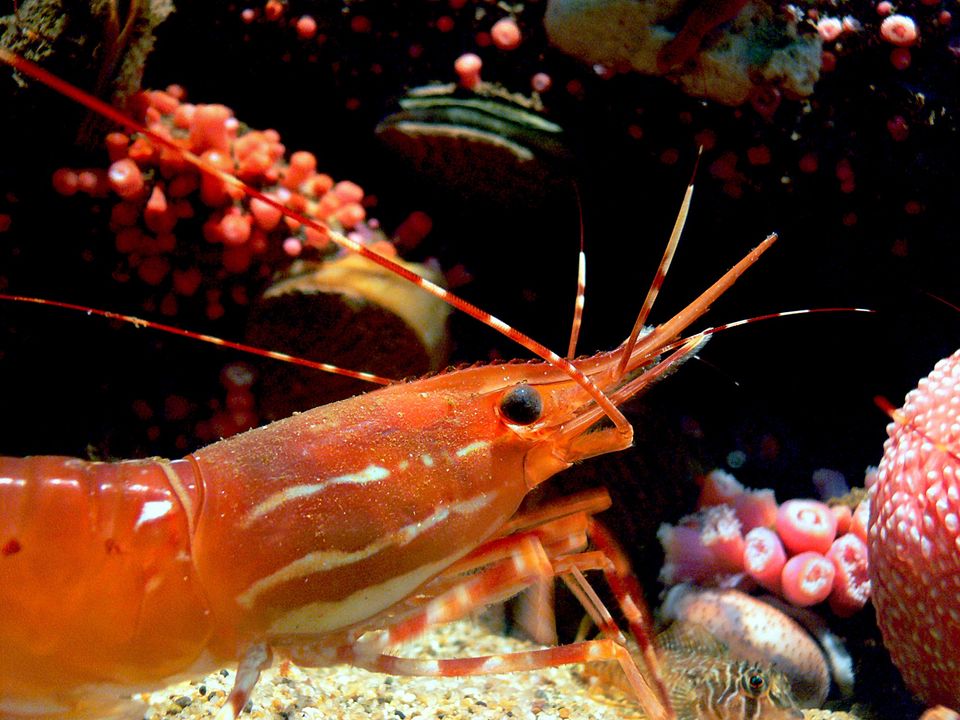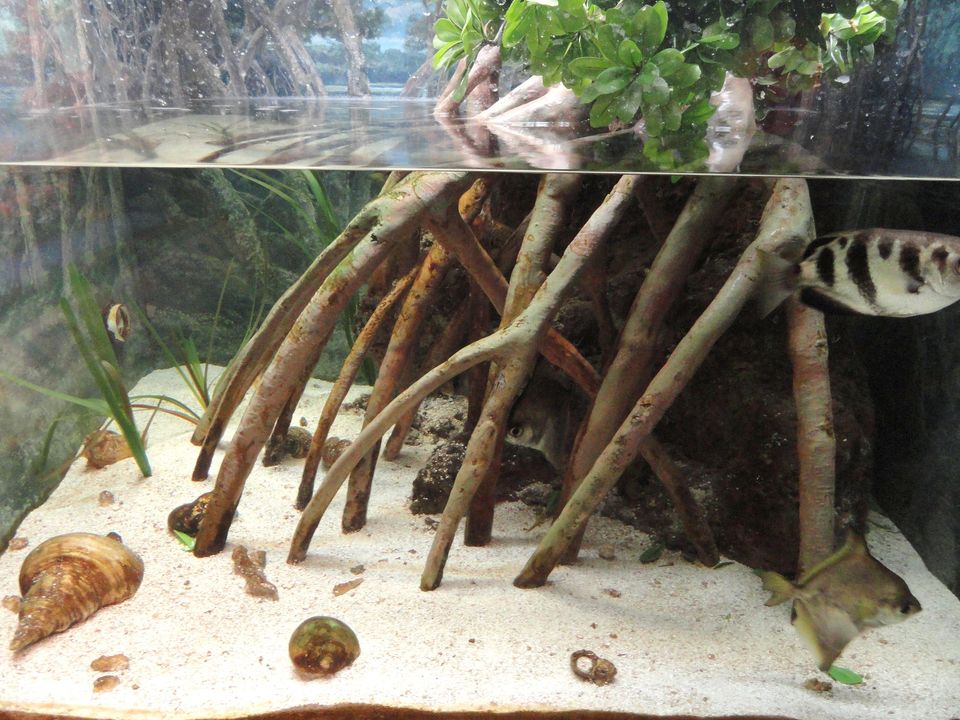Aquarium Myths Debunked: Separating Fact from Fiction in Fishkeeping - Part#1
As a fishkeeper, it's important to have a good understanding of the needs and care requirements of your fish. Unfortunately, there are many myths and misconceptions about fishkeeping that can lead to misunderstandings and poor care practices.

Part 1 of the Aquarium Myths Debunked Series.
As a fishkeeper, it's important to have a good understanding of the needs and care requirements of your fish. Unfortunately, there are many myths and misconceptions about fishkeeping that can lead to misunderstandings and poor care practices. In this article, we'll debunk some of the most common aquarium myths and help you to better understand the true needs of your fish. From misconceptions about oxygen and nutrition to myths about handling and grooming, we'll clear up the confusion and provide you with the information you need to properly care for your fish.
Myth #1: Goldfish Only Grow to the Size of Their Tank
This is a common myth that is often repeated among fishkeepers. However, it is simply not true. Goldfish, like all fish, will continue to grow as long as they have adequate space and nutrition. In fact, goldfish are known for their ability to grow quite large, and they can reach sizes of up to 18 inches (45 cm) or more in the right conditions.
To ensure that your goldfish have enough space to grow and thrive, it's important to provide a tank that is large enough to accommodate their adult size. As a general rule, a goldfish should have at least 20 gallons (75 L) of water per inch of fish.
Myth #2: Goldfish Have a Three-Second Memory
Another common myth about goldfish is that they have a very short memory span and can only remember things for a few seconds. However, this is not supported by scientific evidence. In fact, goldfish have been shown to have memory spans of up to three months.
Goldfish are intelligent and curious animals and are capable of learning and adapting to their environment. They can be trained to recognize their caregivers and respond to certain stimuli, such as the sound of a feeding time.
Myth #3: It's Okay to Overfeed Fish
Overfeeding fish is a common mistake among fishkeepers, and it can have serious consequences for the health and well-being of your fish. Fish have a limited ability to digest food, and excess food can lead to a build-up of waste in the tank, which can lead to poor water quality and illness.
It's important to provide a varied and nutritious diet for your fish, but it's also important to avoid overfeeding. A good rule of thumb is to only feed your fish as much as they can eat in two minutes. If you are unsure how much to feed your fish, it's a good idea to consult a reputable source or your veterinarian.
Myth #4: Fish Don't Feel Pain
This is a myth that is often perpetuated by people who are not familiar with the biology and behavior of fish. However, scientific evidence suggests that fish do indeed feel pain. Fish have pain receptors, and they have been shown to exhibit behaviors associated with pain, such as rubbing or biting their own body, when subjected to painful stimuli.
It's important to remember that fish are sentient beings and deserve to be treated with respect and care. When handling or caring for fish, it's important to minimize stress and avoid causing them unnecessary pain or suffering.
Myth #5: Fish Don't Need Filters
This is a myth that can have serious consequences for the health and well-being of your fish. Fish produce waste, and this waste can build up in the tank and lead to poor water quality, which can cause illness or death in fish.
Filters play a vital role in maintaining good water quality in an aquarium. They help to remove excess waste and toxins from the water, which helps to create a healthy and safe environment for your fish. It's important to choose a filter that is appropriate for the size and type of your tank and to maintain it regularly to ensure that it is functioning properly.
Myth #6: Fish Can't Hear
Fish are often thought to be deaf or have poor hearing, but this is not true. Fish have ears and can hear sound, although the range of frequencies they can hear is different from that of humans. Fish use their ears to detect vibrations, sounds, and changes in pressure, and they use this information to navigate and communicate with each other.
Fish can be sensitive to loud or sudden noises, and it's important to be mindful of this when setting up and maintaining an aquarium. Avoid placing the tank near loud or noisy areas, and be mindful of the volume of music or other sounds that are played near the tank.
Myth #7: Fish Don't Need Oxygen
This is a myth that is not supported by scientific evidence. Fish, like all animals, need oxygen to survive. In fact, fish are highly dependent on oxygen and require a constant supply of it to support their respiratory and circulatory systems.
Fish get their oxygen from the water through their gills, and it's important to ensure that the water in your tank is well-oxygenated. This can be achieved through proper filtration, aeration, and water movement.
Myth #8: Fish Don't Need Light
Fish, like all animals, need light to survive and thrive. Light is important for fish in a number of ways, including regulating their sleep patterns, metabolism, and reproductive cycles.
In the wild, fish are exposed to natural light, which changes in intensity and duration depending on the time of day and the season. In the aquarium, it's important to provide a lighting system that mimics these natural conditions and provides a consistent and appropriate level of light for your fish.
Myth #9: Fish Don't Need Socialization
Fish are social animals and can benefit from socialization with their own kind and other species. In the wild, fish live in groups and interact with each other, and this social interaction is important for their mental and physical well-being.
In the aquarium, it's important to provide a social environment for your fish by keeping them in groups and providing plenty of hiding spots and socialization opportunities.
Myth #10: Fish Don't Need Regular Maintenance
Many people believe that once a fish tank is set up, it requires minimal maintenance. However, this is not true. Fish tanks require regular maintenance to ensure that the water is clean, the equipment is functioning properly, and the fish are healthy.
Some tasks that may be involved in maintaining a fish tank include performing regular water changes, cleaning the tank and equipment, checking and adjusting water parameters, and monitoring the health of the fish. These tasks help to create a healthy and safe environment for your fish and can help to prevent illness and other problems.




